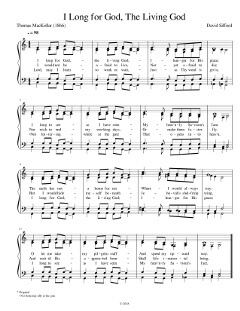This is continuing from part 1 from Puritan Thomas Brooks’ book “Precious Remedies Against Satan’s Devices”, where the devil entices people to sin by suggesting repentance is an easy thing.
You can listen to it here:
or download it:
Download
The entire book is scanned in here: https://archive.org/stream/completeworksoft01broo/completeworksoft01broo_djvu.txt…
…or you can listen to the entire book on this page:
Thomas Brooks – Precious Remedies Against Satan’s Devices
From Thomas Brooks:
By this device Satan draws many a soul to sin, and makes many millions of souls servants or rather slaves to sin, etc.
Repentance is some other tiling than what vain men conceive. (Footnote: The Hebrew word for repentance signifies to return, implying a going back from what a man had done. It notes a turning or converting from one thing to another, from sin to God. The Greeks have two words by which they express the nature of repentance, one signifies to be careful, anxious, solicitous, after a thing is done; the other word is after-wit, or after-wisdom, the mind’s recovering of wisdom, or growing wiser after our folly. True repentance is a thorough change both of the mind and manners. Repentance for sin is nothing worth without repentance from sin. If thou repentest with a contradiction, saith Tertullian, God will pardon thee with a contradiction; if thou repentest and yet continuest in thy sin, God will pardon thee, and yet send thee to hell; there is a pardon with a contradiction. Negative goodness serves no man’s turn to save him from the axe.)
Repentance is sometimes taken, in a more strict and narrow sense, for godly sorrow; sometimes repentance is taken, in a large sense, for amendment of life. Repentance hath in it three things, viz.:
The act, subject, terms.
(2.) The subject changed and converted, is the whole man; it is both the sinner’s heart and life: first his heart, then his life; first his person, then his practice and conversation [behavior of live]. “Wash ye, make you clean,” there is the change of their persons; “Put away the evil of your doings from before mine eyes; cease to do evil, learn to do well,” Isa. i. 16; there is the change of their practices. So “Cast away,” saith Ezekiel, “all your transgresssions whereby you have transgressed;” there is the change of the life; “and make you a new heart and a new spirit,” xviii. 30; there is the change of the heart,
(3.) The terms of this change and conversion, from which and to which both heart and life must be changed; from sin to God. The heart must be changed from the state and power of sin, the life from the acts of sin, but both unto God ; the heart to be under his power in a state of grace, the life to be under his rule in all new obedience; as the apostle speaks, “To open their eyes, and to turn them from darkness to light, and from the power of Satan unto God,” Acts xxvi. 18. So the prophet Isaiah saith, “Let the wicked forsake their ways, and the unrighteous man his thoughts, and let him return unto the Lord,” lv. 7.
Thus much of the nature of evangelical repentance. Now, souls, tell me whether it be such an easy thing to repent, as Satan doth suggest.
Besides what hath been spoken, I desire that you will take notice, that repentance doth include turning from the most darling sin. Ephraim shall say, “What have I to do any more with idols?” Hosea xiv. 8. Yea, it is a turning from all sin to God: Ezek. xviii. 30, “Therefore I will judge you, O house of Israel, every one of you according to his ways, saith the Lord God. Repent, and turn yourselves from your transgresssions; so iniquity shall not be your ruin.
Herod turned from many, but turned not from his Herodias, which was his ruin. Judas turned from all visible wickedness, yet he would not cast out that golden devil covetousness, and therefore was cast into the hottest place in hell. He that turns not from every sin, turns not aright from any one sin. Every sin strikes at the honour of God, the being of God, the glory of God, the heart of Christ, the joy of the Spirit, and the peace of a man’s conscience; and therefore a soul truly penitent strikes at all, hates all, conflicts with all, and will labour to draw strength from a crucified Christ to crucify all. A true penitent knows neither father nor mother, neither right eye nor right hand, but will pluck out the one and cut off the other. Saul spared but one Agag, and that cost him his soul and his kingdom, 1 Sam. xv. 9.
Besides, repentance is not only a turning from all sin, but also a turning to all good; to a love of all good, to a prizing of all good, and to a following after all good: Ezek. xviii. 21, “But if the wicked will turn from all the sins that he hath committed, and keep all my statutes, and do that which is lawful and right, he shall surely live, he shall not die;’ that is, only negative righteousness and holiness is no righteousness nor holiness. (Footnote: It is said of Ithacus, that the hatred of the Priscilian heresy was all the virtue that he had. The evil servant did not riot out his talent, Mat. xxv. 18. Those reprobates, Mat. xxiii. 2, robbed not the saints, but relieved them not; for this they must eternally perish.) David fulfilled all the will of God, and had respect unto all his commandments, and so had Zacharias and Elizabeth.
It is not enough that the tree bears not ill fruit; but it must bring forth good fruit, else it must be “cut down and cast into the fire,” Luke xiii. 7. So it is not enough that you are not thus and thus wicked, but you must be thus and thus gracious and good, else divine justice will put the axe of divine vengeance to the root of your souls, and cut you off for ever. “Every tree that bringeth not forth good fruit is hewed down and cast into the fire.” Mat. iii. 10.
Besides, repentance doth include a sensibleness of sin’s sinfulness, how opposite and contrary it is to the blessed God. God is light, sin is darkness; God is life, sin is death; God is heaven, sin is hell; God is beauty, sin is deformity.
Also true repentance includes a sensibleness of sin’s mischievousness; how it cast angels out of heaven, and Adam out of paradise; how it laid the first corner stone in hell, and brought in all the curses, crosses, and miseries, that be in the world; and how it makes men liable to all temporal, spiritual, and eternal wrath; how it hath made men Godless, Christless, hopeless, and heavenless.
Further, true repentance doth include sorrow for sin, contrition of heart. It breaks the heart with sighs, and sobs, and groans, for that a loving God and Father is by sin offended, a blessed Saviour afresh crucified, and the sweet comforter, the Spirit, grieved and vexed.
Again, repentance doth include, not only a loathing of sin, but also a loathing of ourselves for sin. As a man doth not only loathe poison, but he loathes the very dish or vessel that hath the smell of the poison; so a true penitent doth not only loathe his sin, but he loathes himself, the vessel that smells of it; so Ezek. xx. 43, “And there shall ye remember your ways and all your doings, wherein ye have been defiled; and ye shall loathe yourselves in your own sight for all your evils that ye have committed.” True repentance will work your hearts, not only to loathe your sins, but also to loathe yourselves. (Footnote: True repentance is a sorrowing for sin, as it is an offense to God and averse to God. This both comes from God, and drives a man to God, as it did the church in the Canticles, and the prodigal: Ezek. xiii. 22, 23.)
Again, true repentance doth not only work a man to loathe himself for his sins, but it makes him ashamed of his sin also: “What fruit have ye of those things whereof ye are now ashamed?” saith the apostle, Rom. vi. 21. So Ezekiel, “And thou shalt be confounded, and never open thy mouth any more, because of thy shame, when I am pacified toward thee for all that thou hast done, saith the Lord God,” xxxvi. 32. When a penitential soul sees his sins pardoned, the anger of God pacified, the divine justice satisfied, then he sits down and blushes, as the Hebrew hath it, as one ashamed.
Yea, true repentance doth work a man to cross his sinful self, and to walk contrary to sinful self, to take a holy revenge upon sin, as you may see in Paul, the jailer, Mary Magdalene, and Manasseh. This the apostle shews in 2 Cor. vii. 10, 11: “For godly sorrow worketh repentance never to be repented of; but the sorrow of the world worketh death. For behold the self-same thing, that ye sorrowed after a godly sort, what carefulness it wrought in you, yea, what clearing of yourselves, yea, what indignation, yea, what fear, yea, what vehement desire, yea, what zeal, yea, what revenge.” (Footnote: So much the more God hath been displeased with the blackness of sin, the more will he be pleased with the blushing of the sinner. They that do not burn now in zeal against sin, must ere long burn in hell for sin.)
Now, souls, sum up all these things together, and tell me whether it be such an easy thing to repent as Satan would make the soul to believe, and I am confident your heart will answer that it is as hard a thing to repent as it is to make a world, or raise the dead.
I shall conclude this second remedy with a worthy saying of a precious holy man: “Repentance,” saith he, “strips us stark naked of all the garments of the old Adam, and leaves not so much as a shirt behind.” In this rotten building it leaves not a stone upon a stone. As the flood drowned Noah’s own friends and servants, so must the flood of repenting tears drown our sweetest and most profitable sins.
Go on to Remedies 3-4!
— David

